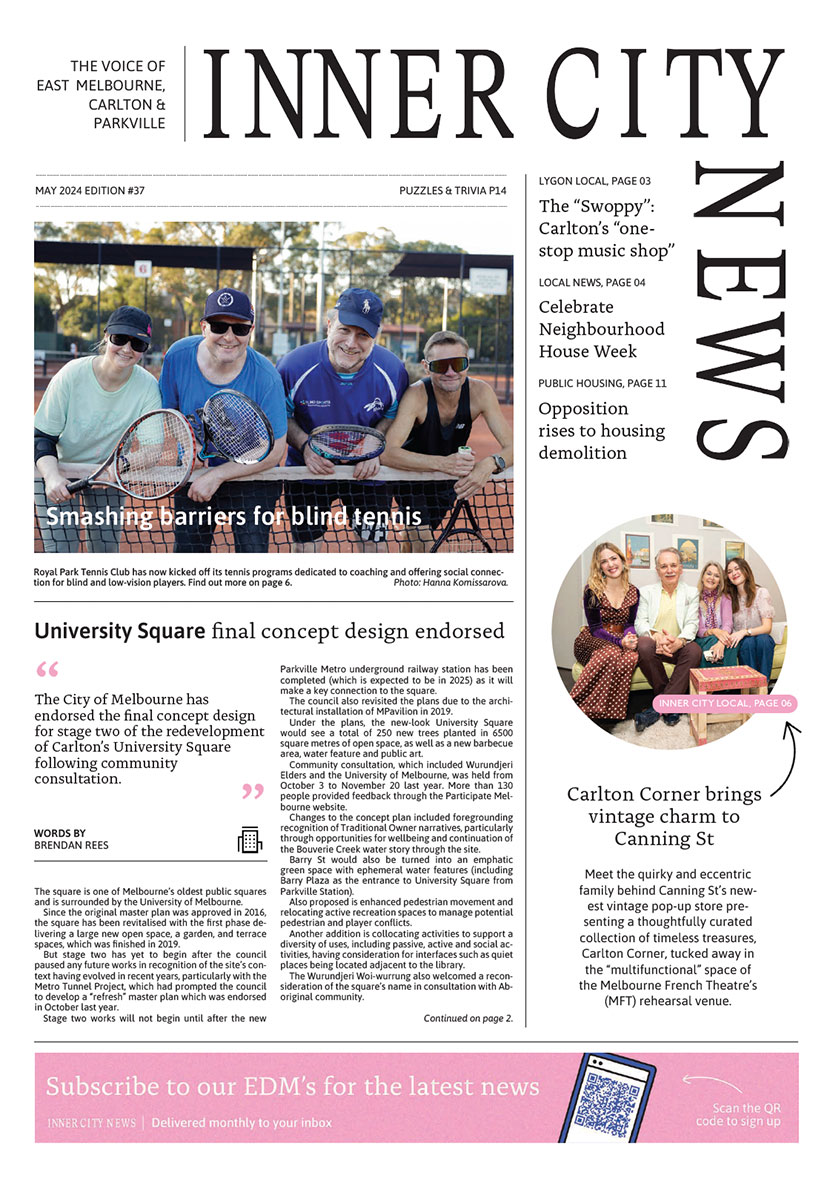Council elections 2024. We start from well behind!
As residents will be aware the Melbourne City Council elections will be held in October this year.
We will once again be confronted with the task of choosing a Lord Mayoral team that will determine if our interests and concerns are to be heard and dealt with over the next four years.
We will again be given a reality check of the City of Melbourne Act 2001 that provides for a gerrymandered council electoral system. It has been reinforced by successive Liberal and Labor governments post the Kennett era.
As residents of this city, we start from well behind non-resident and business voters who are given two votes. In fact, the gerrymander is unique in all of Australia’s electoral jurisdictions and would never be countenanced in the governance of cities around the world.
That’s a disproportionate weighting to bear, given we also have no wards to ensure our local interests and needs are met, and have a CBD-dominated narrative that swamps resident and small business interests in our suburbs.
The compulsory postal voting encourages celebrity and cashed-up Lord Mayoral candidates who can fill our letterboxes and have no need to reveal their real support on the ground at polling booths.
The CRA will be developing a “Resident First” campaign and will invite Lord Mayoral candidates and their team of councillor candidates to respond to a survey and attend public meetings that engage them on our issues.
We will need to separate the populist slogans and policies from those candidates who understand the diversity of the city, recognise resident and small business interests and will support participatory structures such as citizen juries to ensure voices are heard as distinct from the silent surveys.
We invite residents to submit their issues and concerns to the CRA so we can prioritise the matters that will get us to the starting line along with non-resident and business interests.
Contact Martin Brennan CRA vice president.
Paris bans e-scooter share schemes and look what happens!
As many will be aware the City of Paris banned e-scooter share schemes six months ago to ensure that mobility was safe, effective and equitable for all Parisiennes. The ban was the result of the 15,000 e-scooters poor parking, user behaviour and safety issues.
Despite strict measures to regulate their use and limits on the number of e-scooters and the capping of speed at 20kmph, a referendum decided that a ban of e-scooter share schemes should be enforced. Private e-scooters are still allowed, and the view is that they are used for longer trips and not used in place of walking and public transport.
The result has been an investment in cycle paths, parking stations and a boom in cycling. It all goes well for the coming surge of visitors for the 2024 Olympics and for the future of sustainable mobility in Paris.
We await the results of the extended trial in Melbourne and the state government’s preparedness to empower the council to enter contracts with a limited number of e-scooter shared companies with rigid requirements for their on-road use for the safety of pedestrians.
The importance of geo-fencing to keep e-scooters out of our parks and gardens and off our footpaths is a necessary contribution to compliance. The provision of e-scooter parking bays will also be essential to ensure that they are part of an integrated mobility structure and not a disruptor. •

University Square final concept design endorsed





 Download the Latest Edition
Download the Latest Edition